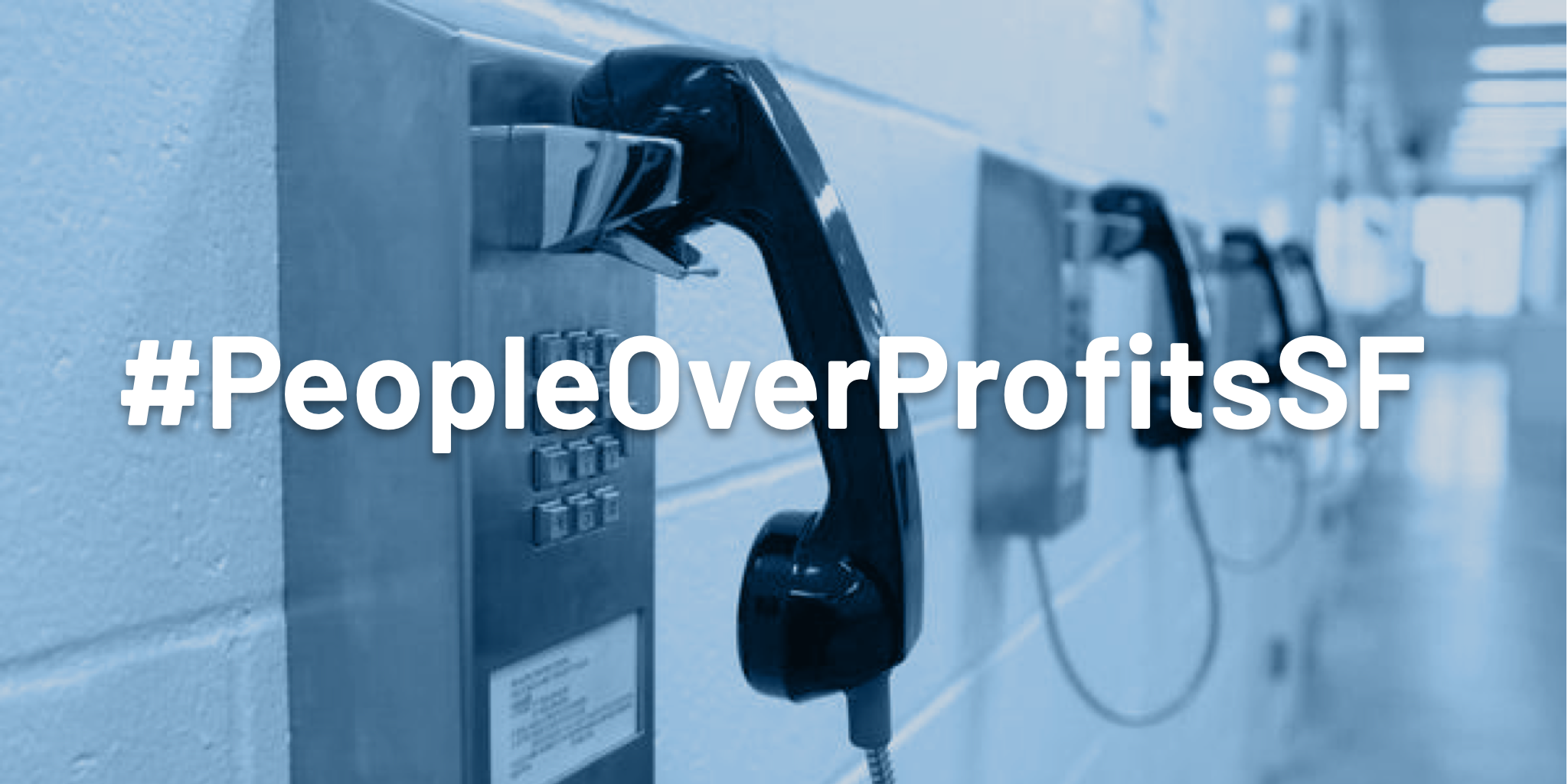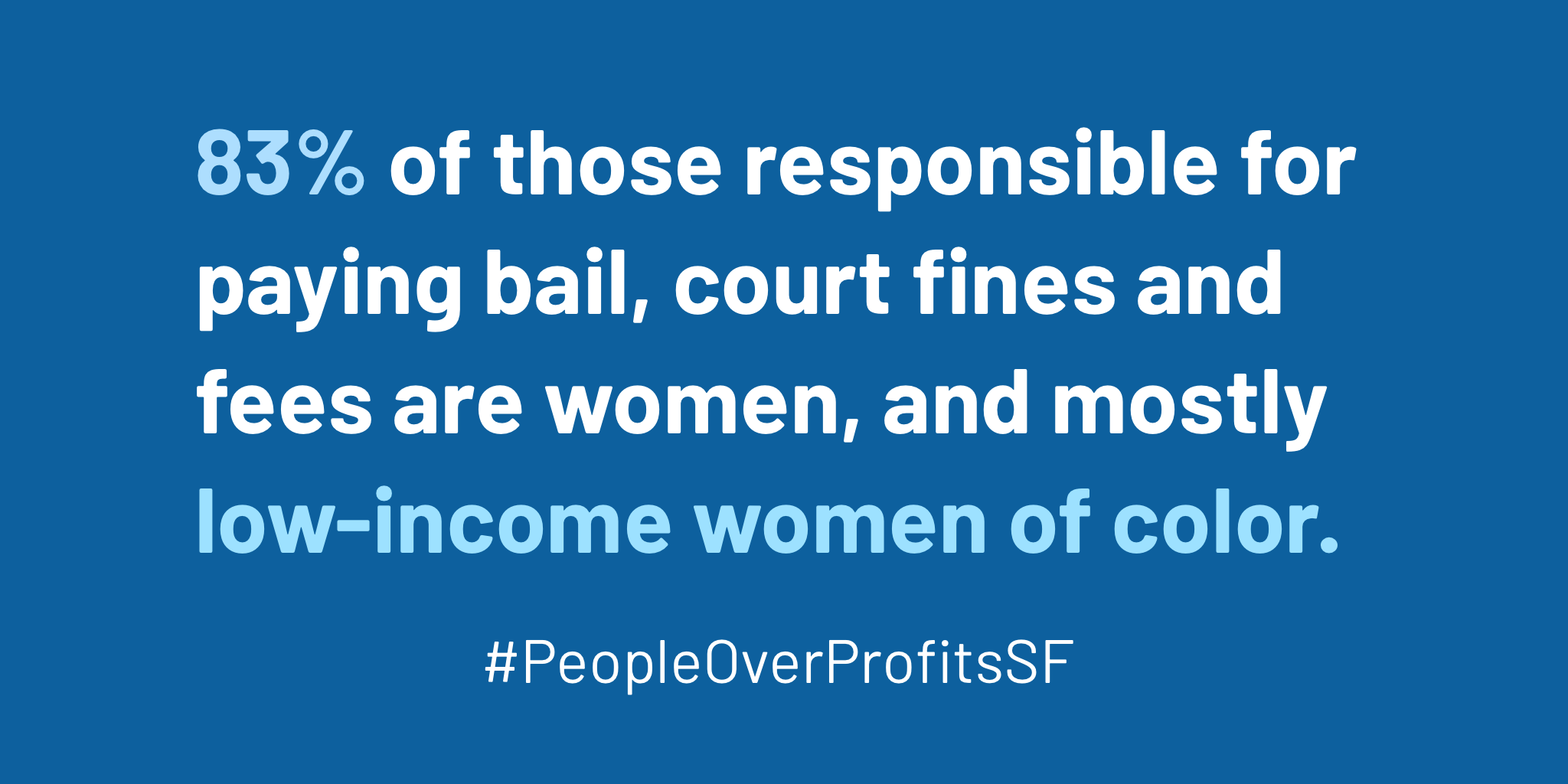New Racial and Economic Justice Ordinance Puts Permanent End to Generating Revenue from Incarcerated People and Their Families
Valentina Sedeno, a reentry programs manager at Young Community Developers, is adamant that it is never a burden to stay in touch with her incarcerated brother. However, it is expensive. In the past, Sedeno and her family have had to choose between paying for groceries and paying for jail phone calls. “My mom has owed a lot of money for phone calls from jail and struggled to pay for them. It ultimately led to her landline being shut off,” she said.
San Francisco has taken another step forward in lifting a formidable economic burden off of families like Sedeno’s. On June 2, 2020, San Francisco Supervisors Sandra Lee Fewer and Shamann Walton introduced the People Over Profits ordinance. This first-in-the-nation ordinance builds on the initial steps taken by Mayor London Breed and the San Francisco Sheriff to make jail phone calls free and end commissary markups. This ordinance makes these reforms permanent and ensures San Francisco cannot generate revenue in this way on other products and services for incarcerated people and their families.

Charging exorbitant fees for jail phone calls and commissary goods is common across the country. But jail programs—like education & reentry services—should not depend on fining incarcerated people above and beyond their sentences, or on gouging their families.
Prior to these reforms, if a person incarcerated in San Francisco jails made two 15-minute phone calls a day, it would typically cost $300 over 70 days (the average jail stay) or $1,500 over a year. And commissary items—such as shampoo, ramen, and deodorant—were marked up an average of 43 percent.
Permanent reform cannot come too soon for the families of the incarcerated. According to a report by the Ella Baker Center, 83 percent of those responsible for paying bail, fines, and fees are women, and mostly low-income women of color. Often people’s grandmother, mother, or sister.

When we drain the bank accounts of incarcerated people’s families, we’re punishing people who have committed no crime, other than supporting their loved ones. That should be celebrated, not penalized.
The higher the phone charges, the harder it is for incarcerated people to stay in touch with family—the lifeline they’ll rely on when they get out. Studies show that incarcerated people who maintain contact with family are more likely to succeed when they’re released.
San Francisco’s local reforms are gaining momentum. California State Senator Holly Mitchell (D-Los Angeles), put forward Senate Bill 555 to permanently lower jail phone rates and markups in jail commissaries throughout the state. And activists everywhere are calling for jail phone calls to be free during the pandemic, since in-person visits have been eliminated to stem the spread of the COVID-19 virus.
Many public officials and community groups came together to make this happen. Big thanks to Supervisor Sandra Lee Fewer, Supervisor Shamann Walton, Mayor London Breed, Sheriff Paul Miyamoto, and Public Defender Mano Raju. The San Francisco Jail Justice Coalition propelled these reforms. Thanks to Young Women’s Freedom Center, Young Community Developers, All of Us or None, Legal Services for Prisoners with Children, Lawyers Committee for Civil Rights, Community Housing Partnership, Berkeley Underground Scholars, and Taxpayers for Public Safety.
